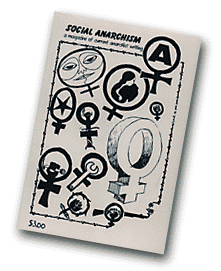On Third World Legs
December 27, 2005
On Third World Legs by S. Brian Willson.
96 pp. Chicago: Charles H. Kerr Publishing, 1992. $7.95 paper.
96 pp. Chicago: Charles H. Kerr Publishing, 1992. $7.95 paper.
How does a lower middle-class white male, raised in a small conservative town-who was, among other things, a Boy Scout, Sunday school teacher, high school and college athlete, Air Force officer, Vietnam veteran, and laome to engage in nonviolent civil disobedience by placing himself on railroad tracks, where he will be run over by a munitions-carrying U.S. Navy train?
The answer is simple, and Brian Willson answers it in simple and straightforward prose in this little book, his autobiography to date. He came to understand, and to experience directly, the large chasm that separates the lofty ideals for which the United States stands and the ugly realities it has imposed on a great many of the Third World's peoples, and a not inconsiderable and growing number of its own citizens.
But the simplicity of style is deceptive, because in addition to politics, there are moral and spiritual dimensions to On Third World Legs that Willson weaves together in such a way as to invite contemplation, even for those who know well the real history of the U.S.
The title itself requires reflection, for its significance can only be appreciated after reading the book in its entirety. Brian Willson now has no legs; they were severed by the U.S. Navy train, and as his narrative makes clear, the maiming was and is attributable directly to actions of civilian and military agencies of the United States government. But the title is not at all a subtle plea for personal pity, because Willson equally tells us, reminds us, of just how many Vietnamese, Nicaraguan, Salvadorean, Panamanian, Iraqi, and other Third World peoples have also become legless-or otherwise maimed, or killed-by the same cause: actions attributable directly to civilian and military agencies of the United States government.
Wilson did not come by this understanding and empathy abstractly. In Vietnam, 1969:
Any one or set of these experiences could easily drive a person to drugs, drink, madness, or suicide (as the large number of reported psychological disorders among Vietnam veterans has shown). But individually and collectively, these experiences lifted Brian Willson out of the ordinary. After seeing the dead Vietnamese mother and her children, Willson says he came to the "profound wisdom'' that
On Third World Legs also makes clear that Willson is not alone. We meet in its pages, for example, Charlie Liteky, Congressional Medal of Honor winner in Vietnam, a medal he returns, along with his veteran's benefits, in protest against U.S. government evils; the Reverend David Duncombe, chaplain and professor, who still continues the civil disobedience at the Concord Naval Weapons Station begun in 1987; and we meet as well Holly Rauen, who, seemingly alone among those present when the train ran over Willson, kept her head and her heart, brought order from the chaos of the situation, and attended to Willson's injuries with an immediacy and skill that were clearly responsible for saving his life.
The book also contains a number of photographs, and an introduction by Staughton Lynd. It does not have any gossip about the rich, famous, or powerful, nor any sexually explicit passages, hence will not be found on the shelves of Dalton's or Walden Books. It nevertheless deserves a wide readership, because the U.S. needs a great many more Brian Willsons if the social and environmental degradation of the country — and the world — is to be reversed.
The answer is simple, and Brian Willson answers it in simple and straightforward prose in this little book, his autobiography to date. He came to understand, and to experience directly, the large chasm that separates the lofty ideals for which the United States stands and the ugly realities it has imposed on a great many of the Third World's peoples, and a not inconsiderable and growing number of its own citizens.
But the simplicity of style is deceptive, because in addition to politics, there are moral and spiritual dimensions to On Third World Legs that Willson weaves together in such a way as to invite contemplation, even for those who know well the real history of the U.S.
The title itself requires reflection, for its significance can only be appreciated after reading the book in its entirety. Brian Willson now has no legs; they were severed by the U.S. Navy train, and as his narrative makes clear, the maiming was and is attributable directly to actions of civilian and military agencies of the United States government. But the title is not at all a subtle plea for personal pity, because Willson equally tells us, reminds us, of just how many Vietnamese, Nicaraguan, Salvadorean, Panamanian, Iraqi, and other Third World peoples have also become legless-or otherwise maimed, or killed-by the same cause: actions attributable directly to civilian and military agencies of the United States government.
Wilson did not come by this understanding and empathy abstractly. In Vietnam, 1969:
. . .I looked at the face of a young mother on the ground whose eyes appeared to be open as she held two children in one arm, another child in the other. Upon closer examination I realized she and her children had been killed by bomb fragments. Napalm had apparently burned much of her face, including her eyelids. (p. 18)Seventeen years later, in Nicaragua:
At least eleven campesinos were murdered… Some of the bodies were brought into Esteli for burial on horse-drawn wagons. Standing alongside the street watching the procession to the cemetery I could see the open caskets containing mothers and children. Five women! I had been there before. Two children! I had been there before. (p. 56)And he would "be there'' again on September 1st, 1987, outside the Concord Naval Weapons Station north of San Francisco. In many respects, the section of the book describing how Willson was run over by a U.S. Navy locomotive pulling two boxcars is even more chilling to read than the accounts of his experiences in Vietnam and Nicaragua. First, it appears that the Navy ordered the train to move, rather than wait until the sheriff's office could clear the tracks by arresting Willson and his two comrades for trespassing. Second, the engineer and two person train crew-civilian employees of the Navy, and veterans themselves-carried out the order, even after it became clear that they were going to run over a human being. (And in what must be the most extreme example of blaming the victim, the crew later sued Willson for causing them traumatic stress; the suit was eventually dismissed). Still a third horror described in this chapter was the immediate aftermath: miraculously still alive, Willson was refused transport to the hospital by the Navy ambulance crew that was there; fully twenty minutes elapsed before a county ambulance came to take him away.
Any one or set of these experiences could easily drive a person to drugs, drink, madness, or suicide (as the large number of reported psychological disorders among Vietnam veterans has shown). But individually and collectively, these experiences lifted Brian Willson out of the ordinary. After seeing the dead Vietnamese mother and her children, Willson says he came to the "profound wisdom'' that
…[W]e are all interconnected in a sacred, mysterious fabric called life. (p. 56)— which wisdom is reinforced in Nicaragua:
The sacredness of life, even the fact that I am sacred as well, had found a home inside me. I am not worth more than they, they are not worth less. (p. 56)And extended after his own disfigurement:
I have a lot of empathy for the train crew. First of all, they're all living the wars I used to live; I believe they're brainwashed just as I was. (p. 81)Thus, Brian Willson will, for the rest of his life, concretely symbolize the dual nature of the country of his birth: the savage effects of U.S. foreign and domestic policies and activities, and the ideals of conscience and commitment to equality and justice that he, like all Americans, was "brainwashed'' with as a child.
On Third World Legs also makes clear that Willson is not alone. We meet in its pages, for example, Charlie Liteky, Congressional Medal of Honor winner in Vietnam, a medal he returns, along with his veteran's benefits, in protest against U.S. government evils; the Reverend David Duncombe, chaplain and professor, who still continues the civil disobedience at the Concord Naval Weapons Station begun in 1987; and we meet as well Holly Rauen, who, seemingly alone among those present when the train ran over Willson, kept her head and her heart, brought order from the chaos of the situation, and attended to Willson's injuries with an immediacy and skill that were clearly responsible for saving his life.
The book also contains a number of photographs, and an introduction by Staughton Lynd. It does not have any gossip about the rich, famous, or powerful, nor any sexually explicit passages, hence will not be found on the shelves of Dalton's or Walden Books. It nevertheless deserves a wide readership, because the U.S. needs a great many more Brian Willsons if the social and environmental degradation of the country — and the world — is to be reversed.

